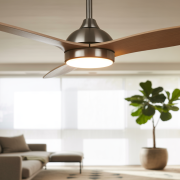Like your heating, ventilation, and air conditioning (HVAC) unit, your entire plumbing system ensures you stay comfortable at home. Unfortunately, you may have only put a lot of thought into caring for your plumbing system once faced with a plumbing emergency.
You should never make the same mistake of neglecting your plumbing system just because you thought it was working just fine. Proper maintenance is needed now and then, and such is a mix of small and big practices to keep your plumbing system in good condition.
Keep reading below for some of the most common plumbing mistakes you should avoid committing.
1. Not Letting The Plumbers Do Their Job
There are things that a homeowner can DIY, but some are best left to the experts. However, it doesn’t mean that even newbies or those who do not know about plumbing can try it. The best rule of thumb to follow always is to call an expert plumber whenever you’re unsure. Don’t attempt to do something you can’t do accurately.
Here’s why. Plumbing problems can be easy to fix, but only if you know what you’re doing. Otherwise, you could be doing more harm than good, resulting in an even bigger problem. You’re sure to face costly, or worse, irreparable damage when it reaches that point.
That said, a good homeowner also takes time to learn from the experts. When a plumber performs regular maintenance and repair on your pipes, observe what they’re doing, so you can also learn. If you have any questions, ask them right away. By doing so, you are more equipped to take a proactive approach to plumbing maintenance than one who lets the small things slip away.
And to help you get started looking for a potential plumber you can trust, click here for ideas.
2. Not Using A Drain Screen
A drain screen is small and inexpensive, but one of the most effective ways of keeping drain systems and sinks clean. No matter how you avoid pouring food scraps and other waste on the sinks and drains, there will still be those little bits and pieces when washing dishes. The toilets aren’t spared from this, too, as you can have particles like hair or bead from exfoliators and other beauty products, to name a few.
If you’re not using a drain screen yet, you’re missing out on an opportunity to provide the best care and maintenance to your plumbing systems. It’s one of the best proactive approaches to ensuring no foreign debris and particles make it down the drain.
3. Overusing A Drain Cleaner
Let’s face it, every homeowner could’ve already been guilty of this. Drain cleaners are found in almost every supermarket and hardware store. Because they’re easy to get by, it’s normal for homeowners to buy a drain cleaner as their first line of defense. While they may be effective for clogged drains and clearing out built-up residue in the sink or shower, these drain cleaners may do your pipes more harm than good in the long run.
Drain cleaners work well for a good reason: they’re made of harsh chemicals that can break up and remove those clogs. When overused, the chemicals will start to eat away the walls of metal and PVC pipes. If this happens, then you have to replace your entire piping system. It’s reconstruction work that’s expensive and inconvenient.
Instead of using commercial drain cleaners, consider using a more natural solution. Mix half a cup of vinegar and half a cup of baking soda, and pour this down the drain. After ten minutes, follow through by pouring boiling water.
4 .Connecting Galvanized And Copper Pipes
Copper and galvanized wires never go together. Connecting them will only damage your plumbing components faster, as it would lead to corrosion. It’s only the beginning of the many problems that could arise, as corroded pipes cause further issues.
This fact only proves the importance of leaving major plumbing repairs only to expert plumbers. When those plumbing works are done, always be cautious that those two materials never come into contact. A good plumber knows how to use a dielectric union between copper and galvanized wires to prevent their touching and corrosion.
5. Wrapping Thread Tape Backward (Or Worse, Using The Wrong Tape)
Polytetrafluoroethylene (PTFE) thread tape, most popularly known as Teflon tape, must be wrapped around the threads in a clockwise direction. Unfortunately, many individuals still make the mistake of wrapping it the opposite way.
Wrapping the thread tape backward results in the tape unwinding as the fitting is tightened. In effect, it’s as if it’s defeating the purpose of using tape in the first place. The best practice is to wrap the Teflon tape three times and then face the last wrap to the left side as the pipe is screwed to the fitting.
6. Over-Tightening Plumbing Connections

Male Plumber Using Wrench To Fix Leaking Sink In Home Bathroom
Say you’ve done a DIY plumbing repair. Because you want it to feel sturdier and more effective, you’ve tightened the fixtures to an extent where you may have over-tightened it. It applies to supply tubes, toilet bolts, and pipe fittings.
Making this mistake can lead to the cracking of the fittings. Moreover, excessive force can break the fixtures a few weeks down the road, ultimately leading to flooding.
As for the toilet, over-tightening the toilet bolts or any of the tank and bowl components could damage it by breaking the porcelain. In these situations, you have no other choice but to call for emergency plumbing services.
7. Flushing Trash Down The Toilet
This seventh mistake could be a no-brainer for some households, but many are still guilty of this, at least every once in a while. Especially when your toilet trash can is full, and you haven’t cleaned it up yet, there’s always that strong temptation to flush trash down the toilet. Before starting this habit, remember it’s one of the worst mistakes you can make as a homeowner.
The toilet isn’t meant to handle any other form of trash, not even paper towels, which can be relatively thicker. Flushing trash like sanitary napkins, wet wipes, diapers, dental floss, bandages, paper products, and cigarettes will clog your toilet. It may not happen right away, but eventually, it will.
You’ll notice the ill effects of this mistake kick in when your toilet’s water level rises when flushing before eventually going down the drain. When this first symptom shows, let your trusted plumber handle the situation before it gets even worse.
8. Using The Wrong Tools To Unclog Your Drain
A commercial drain cleaner isn’t the only culprit concerning a homeowner’s attempt to unclog a drain. Without a drain cleaner, you could also be tempted to use any other type of tool to help solve the problem.
However, it’s a must to stop this practice and avoid using the wrong tools, such as:
- Homemade Tools- These include bent hangers; however, they aren’t designed to unclog a drain and could only cause further damage.
- Wrong-Sized Tools- It’s not just the type of tool that matters, the size does as well. Be sure to use a snake or auger designed for the drain size you’re working in. There’s no one size fits all approach to this.
- High-Pressure Water- No, your pressure washer certainly won’t help. Too much pressure could only break the indoor water lines.
Instead of using those wrong tools, stick to the tried-and-tested ones. A plunger is always a no-fail. Thus, every household should at least have one.
9. Pouring Grease Down The Sink
Food scraps and other small items aren’t the only reasons it’s a proactive move to have a drain screen, as discussed in one of the sections above. Say you already have a drain screen. Don’t forget one more regular household item to avoid: hot cooking oil.
It can be very tempting to pour hot oil from cooking immediately down the drain so you can wash the same pan as soon as possible before it gets too oily. You may be doing your pan a favor, but this is one in exchange for your pipes’ condition.
When grease solidifies in cooler faucet water, it’ll stick to the walls of your drain pipes. In effect, a thick and gunky blockage will then begin to build. If it happens, only a reputable plumber can give the best fix. Ideally, they should apply a hydro jet to clear the blockage. It’s where high-pressure water is blasted through your pipes but in the right way. Hence, again, a reminder not to DIY with your pressure washer at home.
Instead of pouring hot oil down the sink, a better solution is to pour it into a separate container. Then, dispose of it according to your local regulations.
Happy Pipes, Happy Life
While not the most glamorous part of a household, the plumbing system is undoubtedly one of the most important. Waking up to a plumbing problem is as distressing as it is expensive. As discussed above, many of those plumbing problems arise due to poor and wrong maintenance. Learn from the mistakes of others, and remember the most important thing: always call the experts when unsure.













Comments